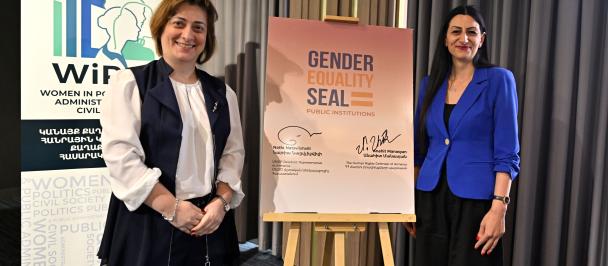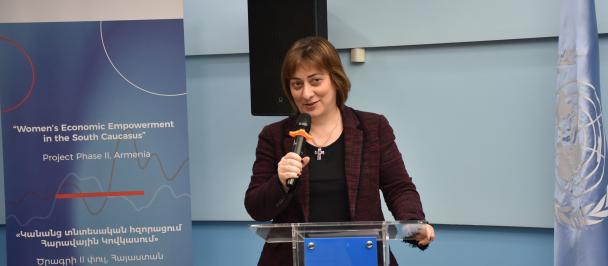Amalya Harutyuunyan
I could never imagine that one day I would hold the microphone and would say my name without embarrassment.
When still at school, I did not like algebra. Lining in the signs of minus, plus, greater or less was something I disliked. I wanted to draw equals, equals between me and people. But equals disappear when you are a girl, a girl with disability.
I have decided to change the stereotypes. I am already a third year student at the Faculty of Psychology. I have great experience in lining in equals: two schools, three years in the university, a job, established organization, author of a handbook, and a project coordinator.
Still in early 2019, I did not have enough faith in me and I was quite astonished to get the acceptance letter to “I am the Community” camp. The same feeling was on 8 July when during the presentation of my handbook I was embarrassed to utter my name. The handbook is an alternative source of information on local self-government (LSG) functions and is aimed at people with visual impairment and mental disabilities. However, everyone can use it.
On my way, while developing the text of the handbook, searching for funds or when seeing inequality signs drawn by people, I often thought that I would not succeed. However, those ‘you cannot”s were the ones pushing me forward.
By the end of 2019, I had dared to present my idea, mobilized teammates and won the grant.
I am already a project coordinator and even more than that, I will be training the LSG bodies myself and will draw the next signs of equals.
I was so confident when presenting to the jury, I uttered my name without feeling embarrassed.
If somebody had told me that I would publish a handbook written by me, would win with the idea of my own and would become a project coordinator, I would merely laugh and not believe. But don’t know for whichever time again, without having faith in me I make the unbelievable a reality.
Amalya Harutyunyan is a graduate from the UNDP 5th “I am the Community” camp held in 2019 and one of the winners of DEMO Lab social innovation competition. Her “Inclusion” project is being implemented in the town of Yeghegnadzor, Vayots Dzor region, and is aimed at increasing engagement of people with disabilities in LSG decision-making processes through establishing special educational modules and electronic platform for LSG representatives and people with disabilities.
The “Women in Politics” project is implemented by UNDP with financial support from the UK Good Governance Fund.

 Locations
Locations




